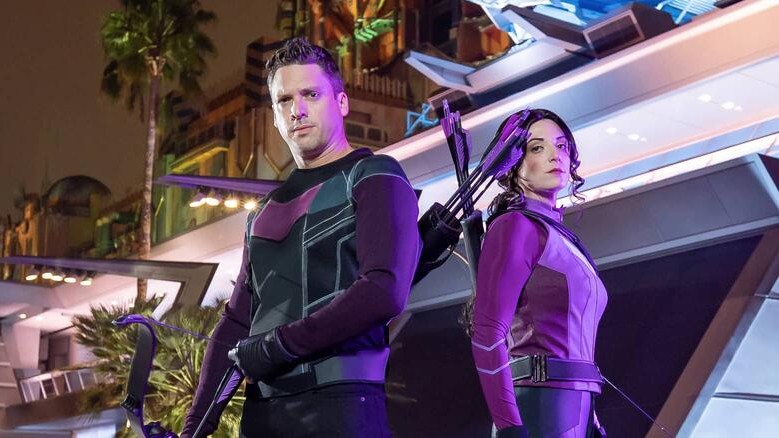
In the middle of a Broadway production, Clint Barton, otherwise known as Marvel’s arrow-slinging Avenger, Hawkeye, stares blankly at the stage. The singing ensemble is reduced to a quiet drone in the background. His daughter waves her hand in front of his face. “Dad. Did you turn your hearing aid off?”
Hearing loss plays a central role in Marvel Studios’ new limited series “Hawkeye,” available on Disney+. This miniseries, which released its final episode on Dec. 22, goes beyond entertainment — by showcasing Clint’s struggles with this condition to a broad global audience, it serves a considerable and much-needed role in raising awareness about hearing loss.
Although the portrayal of hearing loss in popular media is not entirely new — recent movies include “A Star is Born,” “Sound of Metal” and “CODA” — Marvel’s choice to highlight Hawkeye’s hearing loss as a major plot element is significant. Hearing loss and deafness are rarely presented so explicitly. Characters facing these issues are often sidelined to minor roles, particularly in mainstream media.
The lack of representation for individuals with hearing loss in the media is in stark contrast to how common it is in the United States. Approximately one fifth of American adults have some degree of hearing loss. Hearing loss is also severely undertreated — of the 29 million U.S. adults aged 20-69 who could benefit from hearing aids, fewer than 1 in 6 have actually used them.
With a flashback montage, the show implies Clint Barton’s hearing loss is from exposure to loud noises during his previous battles as an Avenger. Noise-induced hearing loss affects an estimated 1 in 8 children and adolescents aged 6-19 years and over 1 in 6 adults aged 20-60 years. In particular, veterans are frequently exposed to harmful noise during their military service. When left untreated, hearing loss can be associated with the inability to communicate with loved ones, frustration, and loneliness.
Marvel’s on-screen portrayal of hearing loss in a superhero contradicts antiquated stereotypes of individuals with hearing loss — that they are “deaf and dumb”, old, and unsuccessful. The show also debunks common misconceptions about hearing loss — that people with hearing loss are all deaf, use sign language, and read lips. In the third episode, Maya (a deaf character) first meets Clint (a hearing aid user); the two have difficulty communicating. Maya even criticizes Clint for being too dependent on technology for communication. Hearing loss spans a spectrum from a mild hearing loss to deafness — individuals with hearing loss communicate in different ways, depending on their listening environment, hearing loss severity, and other factors.
Marvel Studios taking the step to reveal new, more human aspects of superheroes opens up a new range of stories for Disney — chronic health issues like hearing loss and deafness are seldom explored in popular entertainment. The entertainment industry can play a valuable public health role by reaching audiences across all ages and backgrounds and highlighting the importance of hearing health. Increased awareness can remind people to protect their ears from loud noise exposure and may encourage those who would benefit from hearing aids to start using them. Depicting characters with this condition normalizes hearing loss, fights stereotypes, and allows young fans who share this condition to identify with a superhero.
Just as we care about eating healthy foods, exercising regularly, and getting enough sleep, we should value hearing protection as a vital part of self-care. It’s important to protect our ears so that we can continue to listen to our loved ones and the world around us. Next time when you reach for your keys, don’t forget your earplugs.
Chern is a resident physician of Otolaryngology-Head and Neck Surgery at NewYork-Presbyterian Hospital (Columbia/Weill Cornell); Denham is a third-year medical student at the Columbia University Vagelos College of Physicians and Surgeons.
